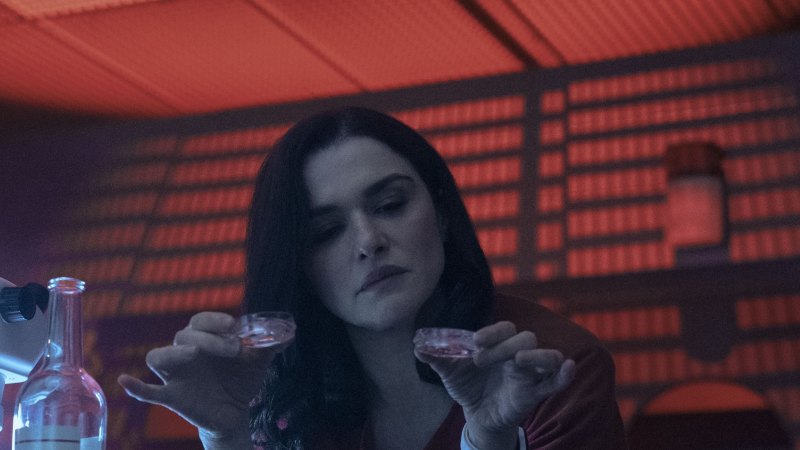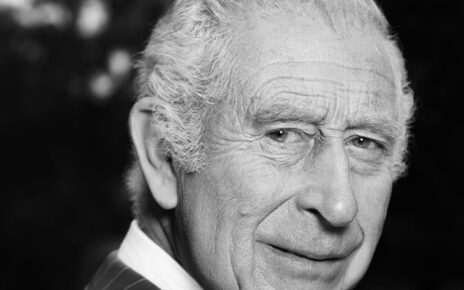Save articles for later
Add articles to your saved list and come back to them any time.
Not so long ago, according to one Dr Alan Guttmacher, doctors used the word “monsters” as a quasi-medical term, handed down from an 18th-century midwives’ manual, for conjoined twins. Guttmacher was head of gynaecology at Mt Sinai, the hospital where the twin gynaecologists whose story was the inspiration for Dead Ringers briefly worked together. As a twin himself, he held firm views on the supposedly unhealthy psychology of the twin bond. “All separate identical twins may be regarded as monsters who have successfully escaped the various stages of monstrosity,” Guttmacher wrote in one of his many papers on the subject. In a way, he believed, identical twins who had separated in the womb were more at risk of being conjoined psychologically. At least conjoined twins had distinct identities, since they could not be mistaken for each other.
David Cronenberg’s Dead Ringers, a 1988 film starring Jeremy Irons as twin gynaecologists called the Mantle twins, recycled many real-life details from the case of Stewart and Cyril Marcus, celebrity twin New York fertility experts whose lives collapsed into a morass of drug addiction, squalor and madness before they both died, one a few weeks after the other, in 1975.
Aspects of the Marcus case – the fact that they both chose to specialise in gynaecology, the balance of power between smooth operator Stewart and back-room plodder Cyril, the years of drug sprees, their final bacchanale combining Nembutal with children’s party food – were seamlessly threaded between Cronenberg’s usual concerns of body horror, altered states of consciousness, the coercive nature of institutions and the blurring of sex and power.
Rachel Weisz in Dead Ringers.Credit:
Elliot, the dominant brother in his film, sets up and tries out sexual partners before passing them on to the more reticent Beverly, each pretending to be the other as circumstances demand. It’s just a game, until they encounter perceptive actress Claire Niveau (Genevieve Bujold). Obsessed with Claire, Beverly feeds his addled energies into designing a range of hooked and pointed instruments “for use on mutant women” that nobody who saw the film will ever recall without wincing. Along with its many other fixations, Cronenberg’s film twists a scalpel in the belly of misogyny.
It thus comes as something of a surprise to see a new version of Dead Ringers in which the twins are women, still called Elliot and Beverly, but now both played by British actor Rachel Weisz. According to chief writer Alice Birch, who has previously won an Emmy for her script for Normal People and a WGA award for her work on Succession, the gender swap “changes everything, but it also changes nothing”. Rachel Weisz, who brought the idea to Birch, says she was always fascinated by the co-dependency of the Mantle twins “who do everything together, who live together and work together but are then pushed apart by the patient who comes between them,” she says. “I thought, ‘oh God, wouldn’t that be an interesting story to tell?’ And so I could be in it, I thought it could be women.”
In fact, the characters have evolved to be quite different from the male Mantle twins. “The first decision was that they were going to be obstetricians, not just fertility doctors, so they were going to be bringing babies into the world, so that changes things radically,” says Birch. “That was a story decision, feeling we’ve got six hours and were hungry to tell new stories.”
But the contrast between the two characters is also much sharper than it was in Cronenberg’s film – if they weren’t twins, they wouldn’t like each other at all – which is reflected in their professional interests. Elliot, the drug fiend and party girl, is a driven innovator playing Frankenstein with jars of tissue and foetuses in her futuristic laboratory; Beverly wants to revolutionise the way women give birth, to make it safer and more humane; Elliot calls her Miss Goody Two-Shoes, while also doing her best to help her become pregnant. Insemination is just one of their shared activities, however; they have never so much as spent one night in different cities. Until, as in Cronenberg’s film, Beverly falls in love with a patient Elliot has seduced for her: an actress called Genevieve (a homage to Bujold) played by Britne Oldford. It is the first threat to the twin dyad. Elliot fights back. Beverly swings between the two of them.
At the outset, the Mantle sisters work alongside each other in a New York hospital. “It does begin in quite a grounded hospital space with very real situations and patients,” says Weisz. Both doctors are desperate to set up an independent establishment where they can pursue their respective radical agendas without interference; they just need an investor. Their white knight comes in the very grubby form of Rebecca Parker (Jennifer Ehle), an opioid billionaire with a singularly daffy wife, Susan (Emily Meade). It is a fatal ethical compromise.
“That’s good for drama, I think,” says Weisz. “Hopefully people will believe in their dreams. Then as it goes on it becomes more and more heightened and operatic and what we call neo-fi, so not exactly sci-fi. One thing we talked about is that women’s bodies have always been zones for politics, unfortunately; I wish they weren’t, but that’s just how it is.”
It is striking that all the primary couple relationships in the story are same sex. That, says Birch, was not a political decision.
“Genevieve had to be a woman in order to be a patient of these doctors, so that was story. But then with the Parkers, I don’t remember why. Yes, of course it changes the dynamic, but for me it always begins with character and story, their voices and (our) being open to the people who show up to the drama. I can’t imagine them now not being played by Jennifer Ehle and Emily Meade.” All these women, seething and steaming over sex and money: the new Dead Ringers is a cauldron of bubbling oestrogen.
When Cronenberg’s icy, elegantly concise film was released, the New York Times review recommended it for the “schizophrenic marvel” of Jeremy Irons’ dual performances, which he managed to distinguish seemingly by an act of will. Weisz has the advantage of having two different hairstyles – long and flounced for Elliot, a neat ponytail for Beverly – but the sisters’ personalities, bearing and even resting expressions are so distinct that there are moments when she doesn’t seem to be identical to herself. She frequently changed character during a single scene, but it didn’t faze her.
“I was given scripts that had two completely defined characters that had psychological complexities and different inner lives and senses of humour, senses of gravity – I mean, everything – so it was extremely easy to differentiate them,” she says. “Neither of them is me. But they were both inside me.”
Dead Ringers is on Amazon Prime Video from Friday, April 21.
Find out the next TV, streaming series and movies to add to your must-sees. Get The Watchlist delivered every Thursday.
Most Viewed in Culture
From our partners
Source: Read Full Article



